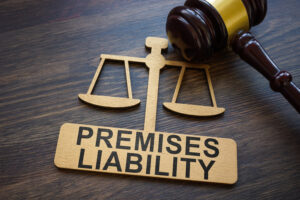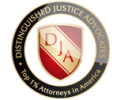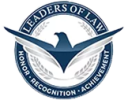Premises Liability Attorneys in Richmond & Tappahannock, Virginia
You probably know that if you are injured in a car accident caused by a negligent driver, you can sue that driver for compensation. But what if you are injured on someone else’s property due to the owner’s negligence? In that scenario, you can also file a personal injury claim based on the legal principle of premises liability.
In Virginia, a property owner can be liable for injuries sustained by other people who are lawfully on the premises. The rules governing these cases, however, are quite complex. That is why it is important to work with a skilled Richmond premises liability lawyer. Attorney Ryan Wind can review your case and advise you of the best legal strategy for seeking compensation following an accident that occurs on another person or company’s property.
Invitee, Licensee, or Trespasser?–Why the Difference Matters

At the outset, it is important to emphasize that property owners are not responsible for all accidents that occur on their land. Premises liability only applies when an owner has breached some sort of legal duty owed to the injured person. And this often depends on the legal status of the injured person at the time of their accident.
There are basically three legally defined categories of people who may be present on someone else’s property. The property owner’s duty of care to each category is different. Here is a simple rundown:
- Invitees. If someone is invited to enter a property for business purposes, they are considered an invitee. Most premises liability claimants are invitees. If you are shopping at a local store, for example, you are an invitee of the business owner.
- Licensees. If you are invited onto a property for a non-business purpose, you are generally classified as a licensee. A licensee is basically someone who is there for their own convenience as opposed to that of the owner. For instance, if you are invited to a party at someone’s house, you are their licensee.
- Trespassers. If you unlawfully enter someone else’s property–or remain on the premises after being asked by the owner to leave–you are a trespasser.
In terms of Virginia premises liability law, a property owner owes the highest duty of care to invitees. The owner must use ordinary care to maintain the premises in a reasonably safe condition and warn invitees of any potential hidden dangers. With respect to a licensee, in contrast, the owner typically only has to warn the licensee of any known dangerous conditions on the property. And a property owner generally owes trespassers no duty of care to trespassers to protect them from accidental injuries.
At Wind Law, LLC We Also Representing The Following Legal Services:
- ATV Accidents
- Back Injuries
- Bicycle Accidents
- Boating Accidents
- Broken Accidents
- Broken Bones
- Burn Injuries
- Catastrophic Injuries
- Construction Accidents
- Construction Zone Accidents
- Defective Product Injuries
- Dog Bite and Animal Attacks
- E-Scooter Accidents
- GRTC Bus Accidents
- Head on Collisions
- Hit and Run Accidents
- Car Accidents
- Wrongful Death
- Trucking Accidents
- Motorcycle Accident
Contact Our Skilled Premises Liability Attorney in Richmond, Virginia For Help Today
Even where a property owner owes a duty of care, it is up to an accident victim to prove that owner was negligent. This means showing that the owner knew about the hazard that caused the victim’s accident–or would have known about the problem had they exercised due diligence. Proving such “actual or constructive knowledge” is often the key to successfully obtaining compensation in a premises liability case.
An experienced Richmond premises liability lawyer can conduct a thorough review of your accident and help you devise the best legal strategy for seeking compensation from a negligent property owner. Contact Wind Law, LLC, today to schedule an initial consultation.





